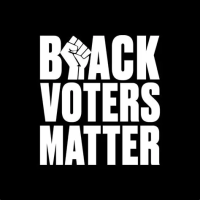blackvotersmatterfund.org
(Black PR Wire) Atlanta — Fair Fight Action and Black Voters Matter Fund recently released a new report detailing the stakes of Louisiana v. Callais, a case the U.S. Supreme Court will rehear on October 15 that centers on Section 2 of the Voting Rights Act – the central safeguard against racially discriminatory redistricting.
Combined with Republicans’ gerrymandering power grab, a ruling striking down Section 2 could help secure an additional 27 safe U.S. House seats for Republicans when compared to the 2024 House maps – at least 19 directly tied to the loss of Section 2 of the Voting Rights Act (VRA). It’s enough to cement one-party control of the U.S. House for at least a generation.
The new report underscores that the Court’s rehearing is an extraordinary step just months after the case was first argued, and there are credible indicators the far-right majority may be preparing to reshape voting rights in America by striking down Section 2 of the VRA.
The Court will examine whether Louisiana’s court-ordered creation of a second majority-Black congressional district, drawn to fix a proven VRA violation, is unconstitutional due to its consideration of race. Essentially, the justices will decide if considering race to address proven racial discrimination in electoral maps can itself be treated as discriminatory.
“This is about more than lines on a map – it could decide whether millions of Black, Latino, and other voters of color still have a voice in our representative democracy. We’re watching the GOP advance to the endgame of a decades-long strategy to dismantle the Voting Rights Act and lock in their own power. If Section 2 is struck down, the Court will be dragging us back to a pre-1965 America where racist maps blocked entire communities from having fair political representation,” said Lauren Groh-Wargo, Fair Fight Action CEO.
“Black and Brown voters are being told once again that our voices don’t matter, our votes don’t count, and our political power is nonexistent. But let’s be clear: we have always been the backbone of democracy—organizing, voting, and demanding justice, even when politicians fail us. This Court is entertaining the notion that fixing racial discrimination is in itself discriminatory — we reject that false narrative and we refuse to be silenced. The Voting Rights Act remains the only federal protection Black and Brown voters have, even as the Court has intentionally targeted and weakened it over the last 15 years. We see these attacks for what they are, racist power grabs designed to strip us of our power. Black Voters are watching and organizing and we will fight back.” said Cliff Albright and LaTosha Brown, Co-Founders of Black Voters Matter Fund.
Broader Impact: If Section 2 is gutted, up to 30% of the Congressional Black Caucus and 11% of the Congressional Hispanic Caucus could lose their seats. Communities of color nationwide would see their voting power gutted, echoing the pre-1965 Jim Crow era — and the ruling could ripple into housing, education, and employment, by declaring that race can never be considered, even to remedy discrimination.
Long-Term GOP Strategy: The report situates Louisiana v. Callais within a long-term GOP strategy to secure partisan advantage by attacking minority political power – in particular by dismantling the Voting Rights Act. After 2012, Republicans rejected building a multiracial party and instead doubled down on attacking minorities. In Shelby County v. Holder (2013) and Brnovich v. DNC (2021), the far-right Supreme Court further weakened protections against racially discriminatory laws. Operatives like Thomas Hofeller, who engineered racially gerrymandered GOP maps, and Leonard Leo, who built the legal machine behind the Court’s rightward shift, were key players in advancing this plan. Section 2 has never been a partisan tool – it has been the safeguard ensuring minority voters can fairly elect candidates responsive to their needs, regardless of which party draws the maps.
The Path Forward: The report identifies a narrow path forward. Democrats must use every available chance to respond to the GOP gerrymandering by redrawing maps (without weakening minority voting power), focus on winning Congress in 2026, and if they gain power, move quickly to pass reforms like the John R. Lewis Voting Rights Advancement Act to restore and strengthen the Voting Rights Act for generations to come.
Read and download the full report • Louisiana v. Callais: The Supreme Court Case That Could Enable Republicans to Rig Congress

